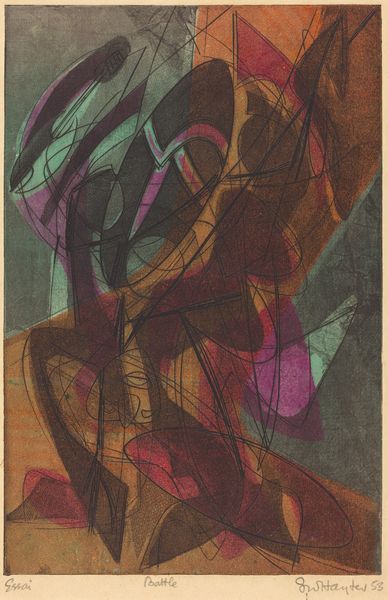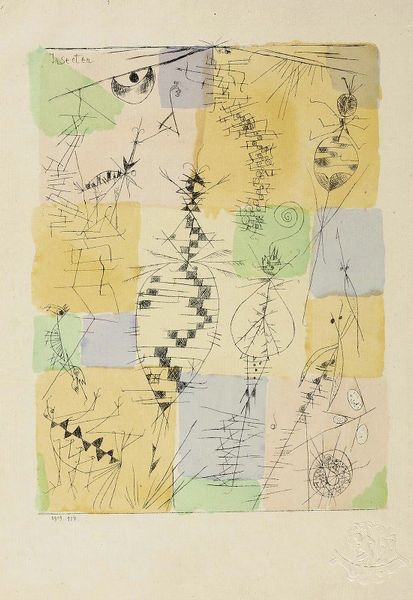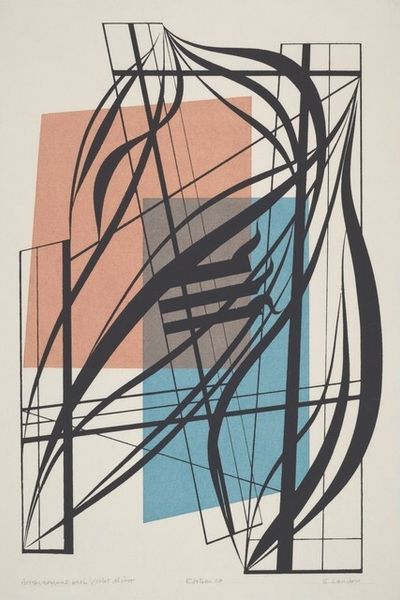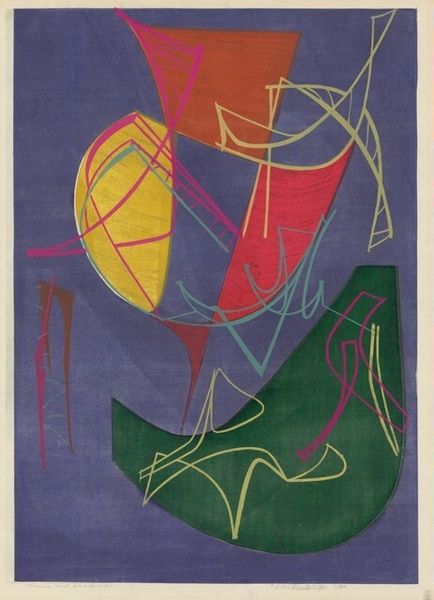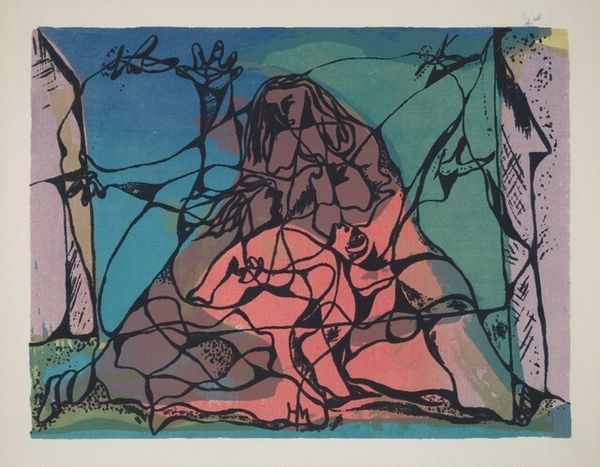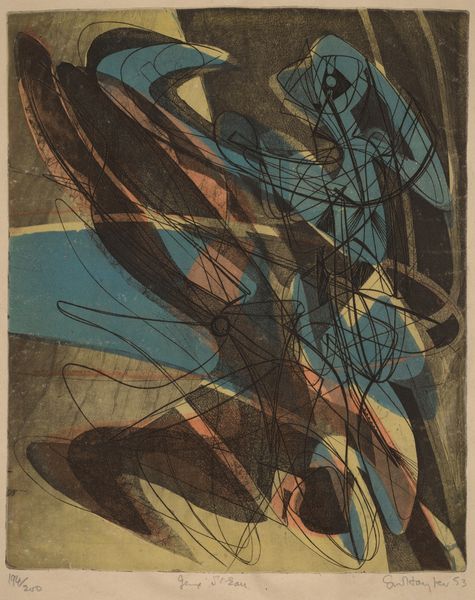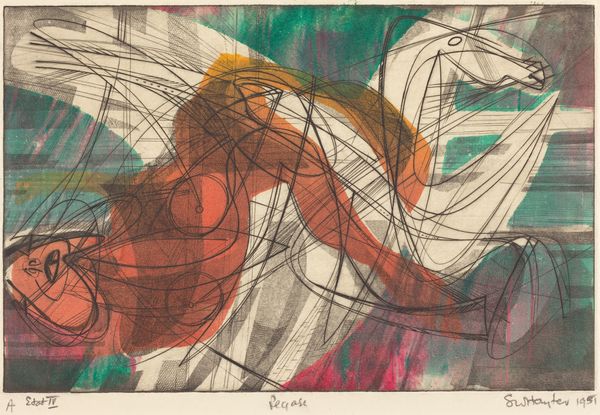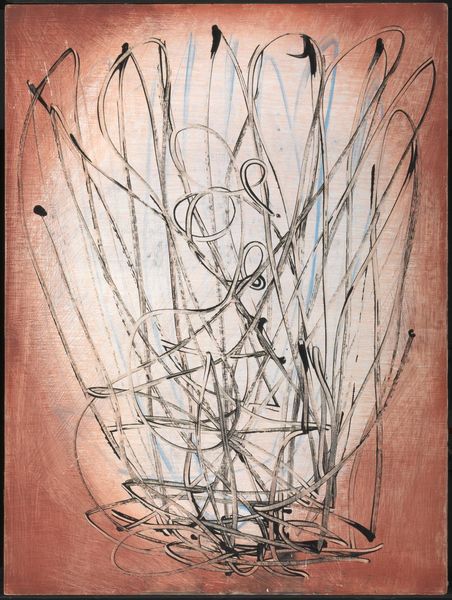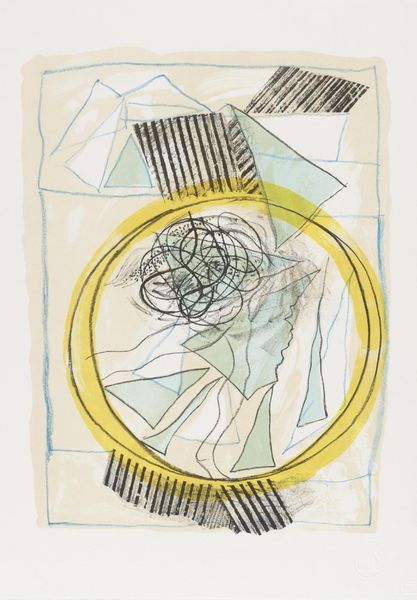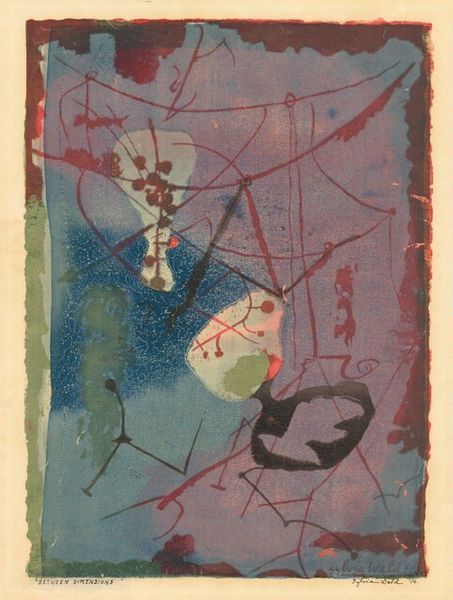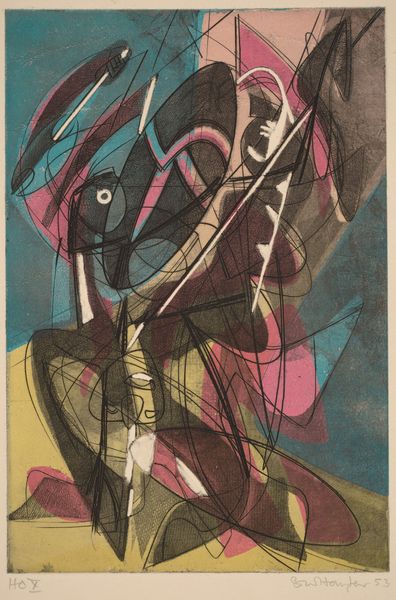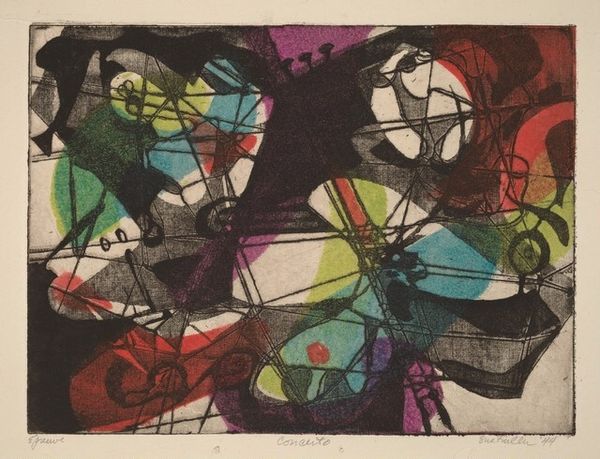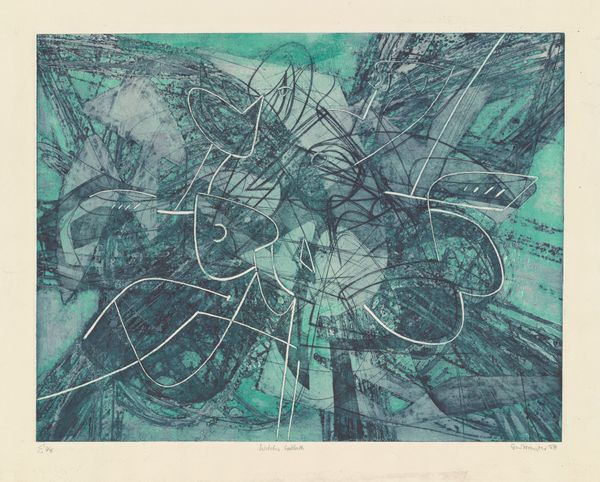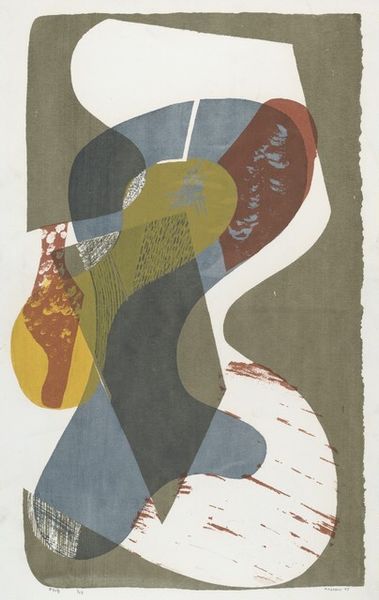
#
abstract-expressionism
#
abstract expressionism
# print
#
geometric
#
modernism
Dimensions: Image: 302 x 271 mm Sheet: 365 x 312 mm
Copyright: National Gallery of Art: CC0 1.0
Curator: We are standing before "Galaxy," a print created in 1947 by Henry Mark. It’s an interesting piece of modernism. What’s your initial reaction? Editor: My first impression is chaotic, yet controlled. A dance between angular forms and a limited color palette evokes a sense of tension. Is this intentional? Curator: The post-war context certainly informs Mark's work. There was a sense of unease, an uncertainty about the future after the horrors of World War II. The angular, fractured shapes could be seen to represent this disruption of the social and political order. Editor: And the title, "Galaxy," adds another layer. It suggests a vast, perhaps unknowable, universe – a stark contrast to the perceived order of pre-war society. There’s something inherently rebellious about that embrace of abstraction after such widespread destruction and strict, enforced cultural programs. Curator: Absolutely. Abstract Expressionism, to which this piece alludes, was, in many ways, a rejection of traditional, academic styles. It was about expressing individual emotion, free from ideological constraints. We should also remember the dominance of the New York art scene at the time. This was art intended to make a statement about the new global stage. Editor: Looking at it through a feminist lens, there's a challenge to conventional notions of beauty. It does not rely on representation or familiar archetypes. The energy created resists being confined, defying the gendered expectation that female art is soothing. Curator: That's a compelling perspective. Thinking about art within systems of power and who gets to create challenges how we perceive art historically. These types of work were frequently backed and boosted by institutions that sought to define cultural shifts in postwar America. Editor: Exactly, art and activism constantly question accepted canons. Examining it like that makes one question who had access, which stories have been told and amplified, and whose were overlooked during Mark's time. Curator: It makes you reflect how "Galaxy" still invites these questions about abstraction’s place within art and society itself. Editor: Agreed. Thinking of how far removed the world is, and the dialogue opened by artworks, adds richness and urgency to revisiting history and artistic expression.
Comments
No comments
Be the first to comment and join the conversation on the ultimate creative platform.
